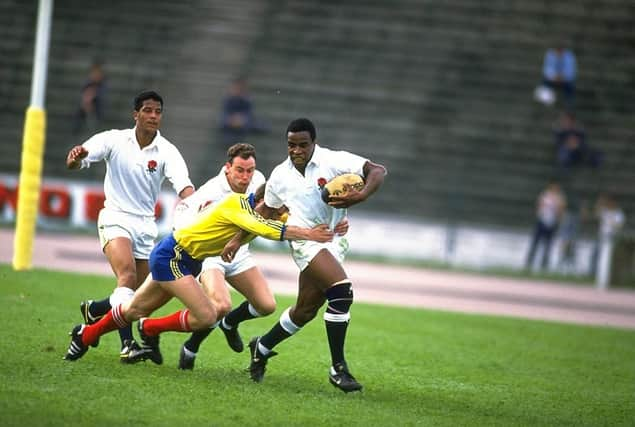Why the RFU are reviewing England rugby fans' use of Swing Low, Sweet Chariot


The Rugby Football Union is reviewing the "historical context" of Swing Low, Sweet Chariot, a favourite song among England supporters.
The song has its roots in American slavery and with the ongoing focus on the Black Lives Matters protests, the RFU has decided many who enjoy the song do not know its story and stands ready to address the issue.
Advertisement
Hide AdAdvertisement
Hide AdA spokesperson said: "The RFU has stated we need to do more to achieve diversity and we are determined to accelerate change and grow awareness.
"The Swing Low, Sweet Chariot song has long been part of the culture of rugby and is sung by many who have no awareness of its origins or sensitivities. We are reviewing its historical context and our role in educating fans to make informed decisions."
What are the origins of Swing Low, Sweet Chariot?
Swing Low, Sweet Chariot was written by Wallace Willis in the mid-19th century
Willis was a Choctaw Freedman, an indigenous person of colour who had been emancipated from slavery. The Choctaw Nation is a Native American tribe situated in southeastern Oklahoma.
Willis is said to have written the song while toiling along the Red River in the south of the United States, which he likened to the ascension of the prophet Elijah at the River Jordan.
Some scholars claim that the song is in reference to the Underground Railroad, a network of secret routes and safe houses used by abolitionists to help slaves escape to the north of the United Staes and Canada where slavery was illegal.
It became a popular spiritual in the early 20th century and was popularised again among folk musicians during the civil rights movement of the 1960s.
It was adopted by English rugby fans in the 1980s, though the song is said to have been popular with English rugby clubs since the 1960s.
Advertisement
Hide AdAdvertisement
Hide AdWhy is it problematic?
Critics of its use say it is offensive to trivialise the nightmarish experience of American slaves by adopting the song as a sporting anthem, especially when its considered that Great Britain played a pivotal role in the transporting of slaves to America.
Writing for the Independent in 2017 James Moore wrote: “ I still don’t think it is "political correctness gone mad" to suggest that it might be a nice idea to show willingness to consider other people's feelings and to refrain from singing a song if its use is considered insulting or out of order. It is simply a matter of being respectful.”
Arthur Jones a musical history professor at the University of Denver likened the song’s use to the adopting of Native American imagery by American Sports team, "in that a group of people seemed to be free-associating with imagery largely disconnected from its history".
Its current guise as a sporting anthem, anecdotally linked to black players Martin 'Chariots' Offiah and Chris Oti, is one that has come under the microscope before as a potential act of cultural appropriation and current England star Maro Itoje told the Daily Mail this week he felt the lineage was "complicated".